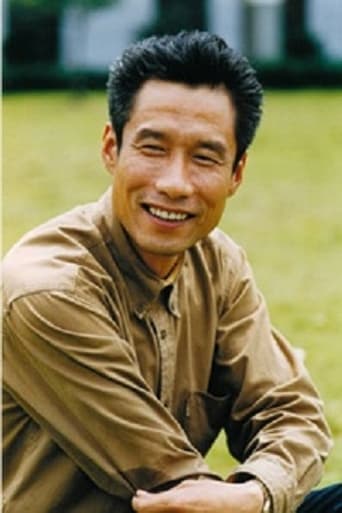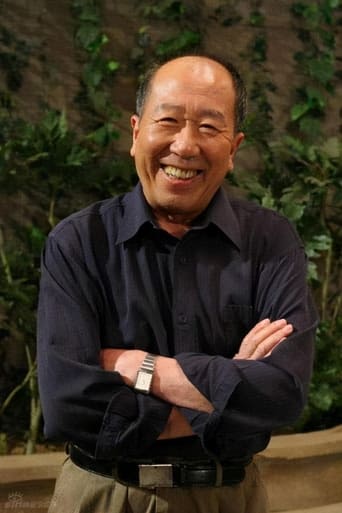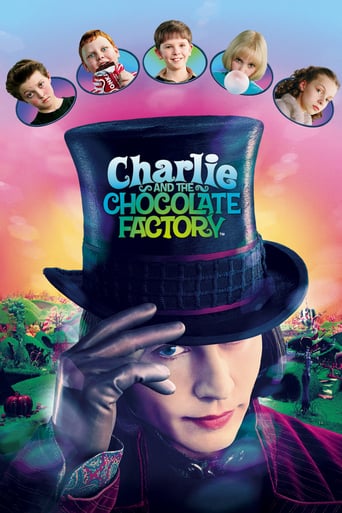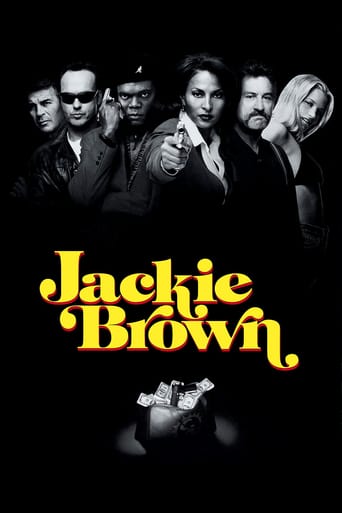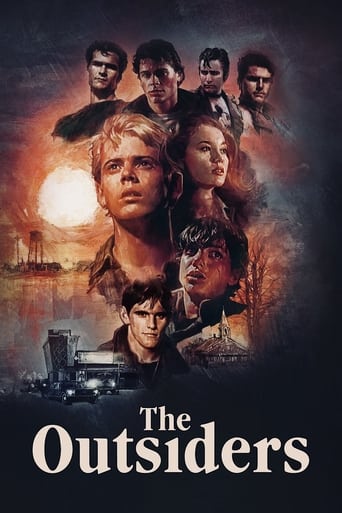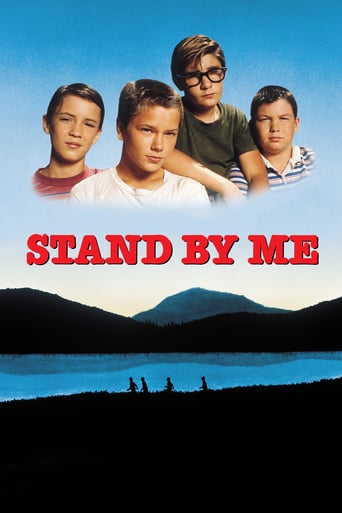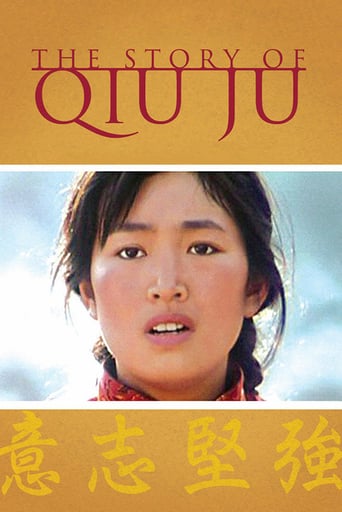
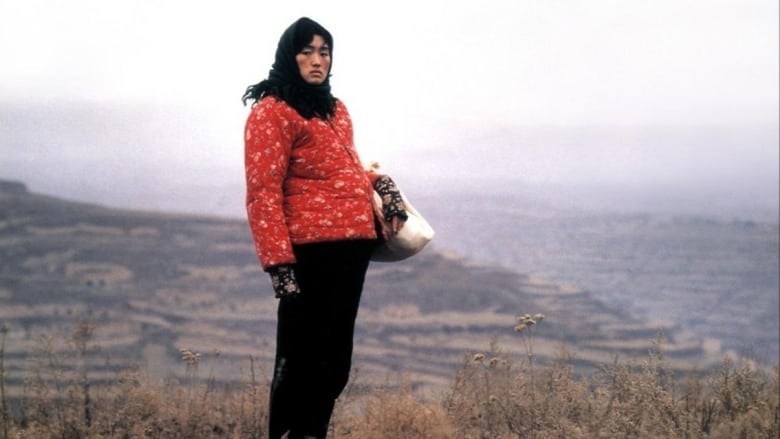
The Story of Qiu Ju (1992)
When her husband is kicked in the groin by the village head, Qiu Ju, a peasant woman, despite her pregnancy, travels to a nearby town, and later a big city to deal with its bureaucrats and find justice.
Watch Trailer
Cast


Similar titles
Reviews
Touches You
If the ambition is to provide two hours of instantly forgettable, popcorn-munching escapism, it succeeds.
A movie that not only functions as a solid scarefest but a razor-sharp satire.
The film's masterful storytelling did its job. The message was clear. No need to overdo.
A pregnant peasant woman seeks redress from the Chinese bureaucracy after the village chief kicks her husband in the groin in this comedy of justice. As she is frustrated by each level of the hierarchy and travels farther and farther away from the countryside the viewer is also provided with a look at the changing Chinese society through the verite camera used in most scenes.Roger Ebert said "along the way we absorb more information about the lives of ordinary people in everyday China than in any other film I've seen." And really, this is the greatness of the film. The mixture of images of Mao with Western advertising and swimsuits. This is a time trapped partially in the 1950s, but also striving towards the 1990s. Whether the cultural influence is a good thing or not, it makes for a fascinating time capsule.
After earning film festival awards and critical acclaim worldwide for his powerful tragedies, Director Zhang Yimou explores new themes in 'The Story of Qiu Ju.'Once again, he examines social injustice but this time avoids dark visions. The tone is ironic, but not angry or tragic, and the story often flashes with humor and wit. Some critics describe this film as a protest by Zhang Yimou against the Chinese government. Yet, the tale could be placed in any village in East Asia or, indeed, in any time and place one finds misunderstanding, wounded pride, conflict, and resolution.Gong Li, so beautiful in other films, reveals her acting versatility by portraying Qiu Ju (roughly pronounced as 'show chew'), as a hugely pregnant peasant. Gong Li had prepared for this role by living for months in a village of Northeast China to learn the local dialect and to get a feeling for this rural culture.The story begins when Qiu Ju demands an apology from her village chief, who had injured her husband during a quarrel with a blow to the groin. She goes to higher and higher levels of government in her appeals for this apology, even after her husband and others urge her to settle for money. At the end, after some surprises, she and the chief have both learned some life lessons. In the opening scene, Zhang Yimou draws us steadily into the rhythms and mood of the story when his camera gradually brings us past strolling pedestrians to introduce us to Qiu Ju and another peasant woman helping to push her disabled husband in a cart. We can see in this shot, and in other scenes, that bystanders were not aware what was going on.Some even give puzzled looks at the camera, adding to the film's gentle humor.Many other episodes gradually take us further into the culture and its story. For example, when Qiu Ju comes to the local government office to start her appeals, we first wait and watch while two teen-agers register their marriage. The district administrator has some fun by asking the shy youngsters if they will still love each other after their wedding night. After hearing Qiu Ju's story, this district administrator urges her to settle for cash from the village chief. Yet, she pushes onward, patiently assisted in this by her woman companion in appeals for an apology to higher and higher levels of government. One of the film's best portraits is of this little peasant woman quietly standing by Qiu Ju's side.She never questions nor complains; we all hope for friends like that.The film's quiet tone and slow pace also give us time to appreciate some underlying social criticisms. Qiu Ju hires a lawyer to write and deliver a petition to the court. He tells her he will make sure that justice is served. She seems impressed. 'So!! You get money to make sure the right thing is done. Being a lawyer is good!!'Yet, it doesn't turn out so well for her. The highest court in Xian, the provincial capital, has an impressive courtroom and set of procedures. Its jury of several judges collects testimony and ponders at length, but once again the verdict is upheld ..money but no apology. This seems to be the end of the tale. Some big surprises turn the story in a new direction. She and the chief next learn to respect each other, but See for yourself how it all turns out. You won't forget the vision of Qiu Ju at the end, bewildered and regretful, getting a verdict in her favor but that she did not want.Those who have lived in any East Asian village will understand why Qiu Ju was urged to take money but not force the chief to lose face. As one Chinese woman explained to me, ' .we and our families for generations lived too close to each other. We just had to get along. This was not always easy ..' She added that 'The Story of Qiu Ju' is the most understanding and affectionate portrait she had ever seen of the rural culture she knew as a child. Some Thai friends told me that the film also evoked childhood memories of their village life, where a Buddhist monk would arbitrate personal disputes and act to restore calm.PS: This film was made in 1992, after the ending of the Chinese cultural revolution enabled Zhang Yimou to enroll in the new Beijing Film Academy. Since then, he's made many films with worldwide renown, including 'Raise the Red Lantern' and 'Red Sorghum' with Gong Li and, more recently, 'Not One Less' and 'Hero'. You should be able to find 'Story of Qiu Ju' at any good video shop. It's already a classic.
Most Chinese movies are about victims of the culture or political system or how beautiful you men and women are kept apart or forced together by forces outside their control. This movie is completely different. It is a simple story about the ordinary Chinese people you can meet on the street and in their homes today and their ordinary lives. It is an amazingly accurate portrayal, unlike anything I have seen before. I only spent 3 weeks in China, but this movie brought back the feel of China, its people, and organizations.Qxi Ju wants an apology from the Chief of the commune for kicking her husband in the groin. This is a story about her travels from the commune to the big city to try to get action from various bureaucracies. Although she is treated kindly and with much respect by the bureaucrats, she never gets exactly what she wants. It is fun to watch naive country girl Qxi Ju quickly learn about master doing things in the big city.For me, the plot in this movie is secondary. It is each of the simple scenes that make this movie wonderful: The doctor's office is heated by a wood stove and the doctor chops the wood and feeds the fire. Qxi Ju's sister gives here a ride to town on the back of her bicycle on a snow covered unpaved road. They use dried chili peppers to trade for money to get a ride to the next town. Qxi Ju negotiates for the price of each thing she buys. The scenes all seem so realistic and beautifully photographed.Yimou Zhang also made "Raise the Red Lantern" which gets higher praise, but that movie is about a world that is harder for me to relate to. This movie is like real life and real people and China today.
Really enjoyed this one. Qiu Ju is the wife of a man who has been kicked by a neighbor, his village chief. She presses for an apology, largely (if subtitles do it justice) because, even though his chest is what hurts longer, he's been kicked in the "privates" and she wants more than one child. She takes her quest for the apology up the chain of officialdom.I couldn't get enough of the scenery - houses, city, carts, clothes, painted paper banners, dried peppers and corn - and the faces of people. As other viewers noted positively, the people in it didn't seem to be actors but real people, caught up in daily affairs and catching us up, too. The nearby village is somewhat familiar to her, but her trip to the city may have been her first. Watching her trying to find her way around, haggling for fair rates and help from a produce buyer, a bike-cart driver, a letter writer, a hotelier, and a lawyer was a lot of fun. Her trips seemed like a great introduction to the culture.One of the things I loved was how the families and neighbors kept having complex interactions with each other throughout the ordeal. And the social roles in this were interesting: Farm/village chief to farmer, sister to sister, daughter-in-law to her in-laws, Party officials to their hierarchy and to citizens, country to city, women's role in general (as in what sex babies are preferred) and the strong stance of a specific woman like Qiu Ju, who seemed to be empowered as much as frustrated by the system and by her family and neighbors.I read reviews of this as a negative comment on bureaucracy. If so, it showed a remarkably humane one. Flaws were on display but the overall tone was of acceptance.The sudden ending left me feeling for the main characters. I seemed to see a judgment in it, but wasn't sure what that judgment was. I wanted to know how the story was interpreted in China, so I came to IMDB to at least see how others took it.



